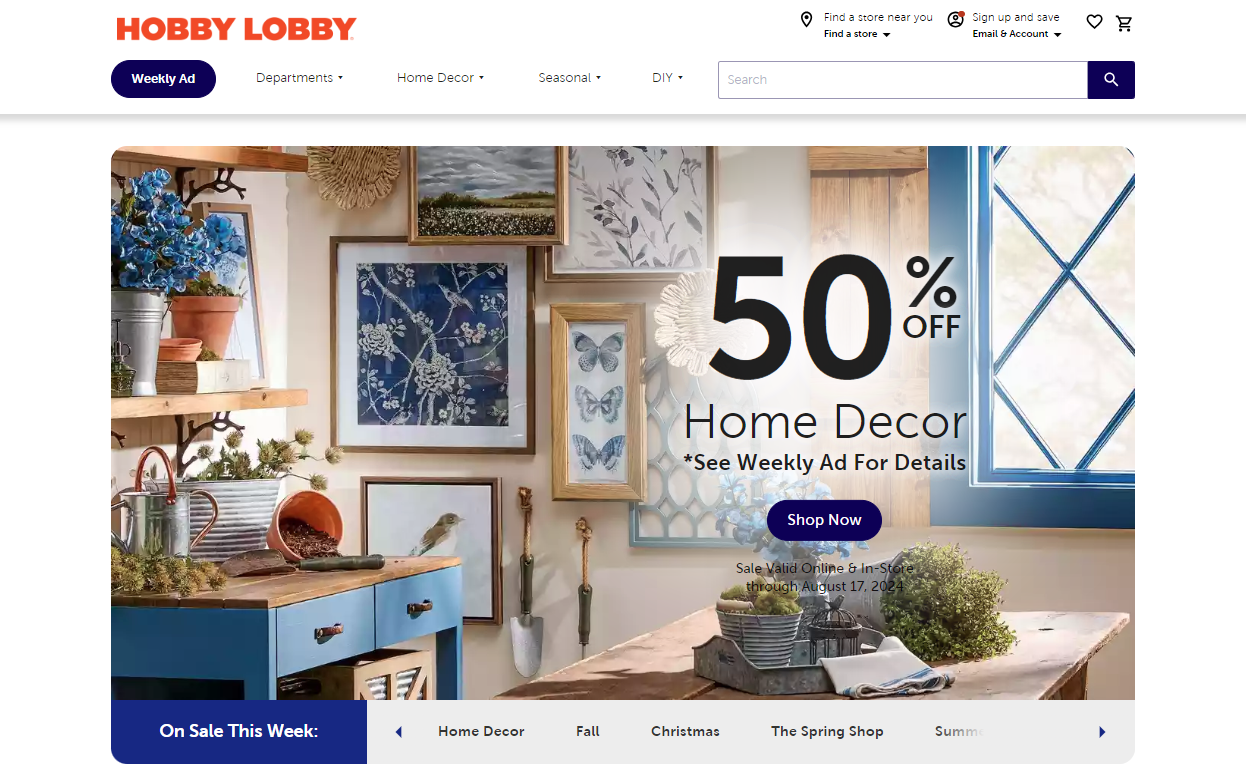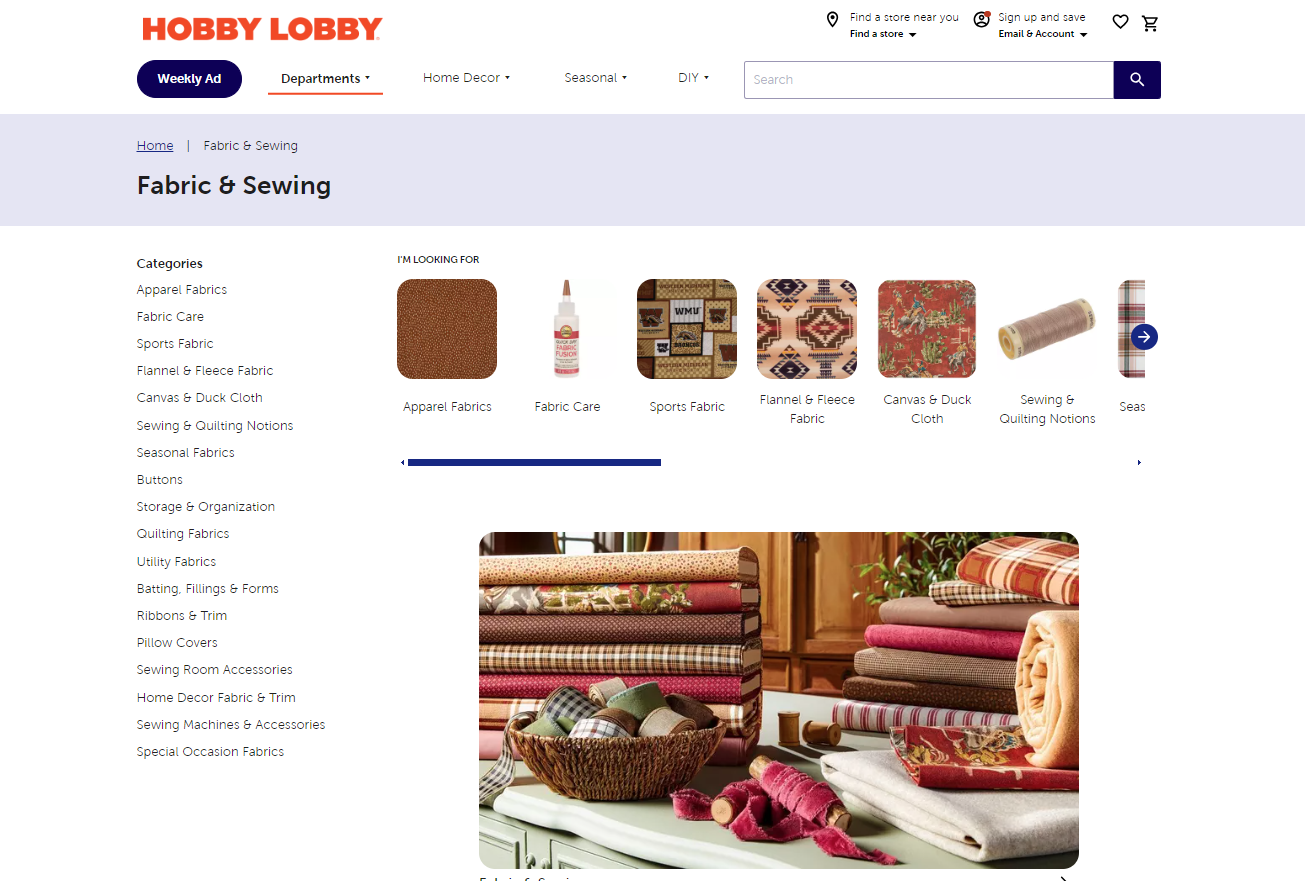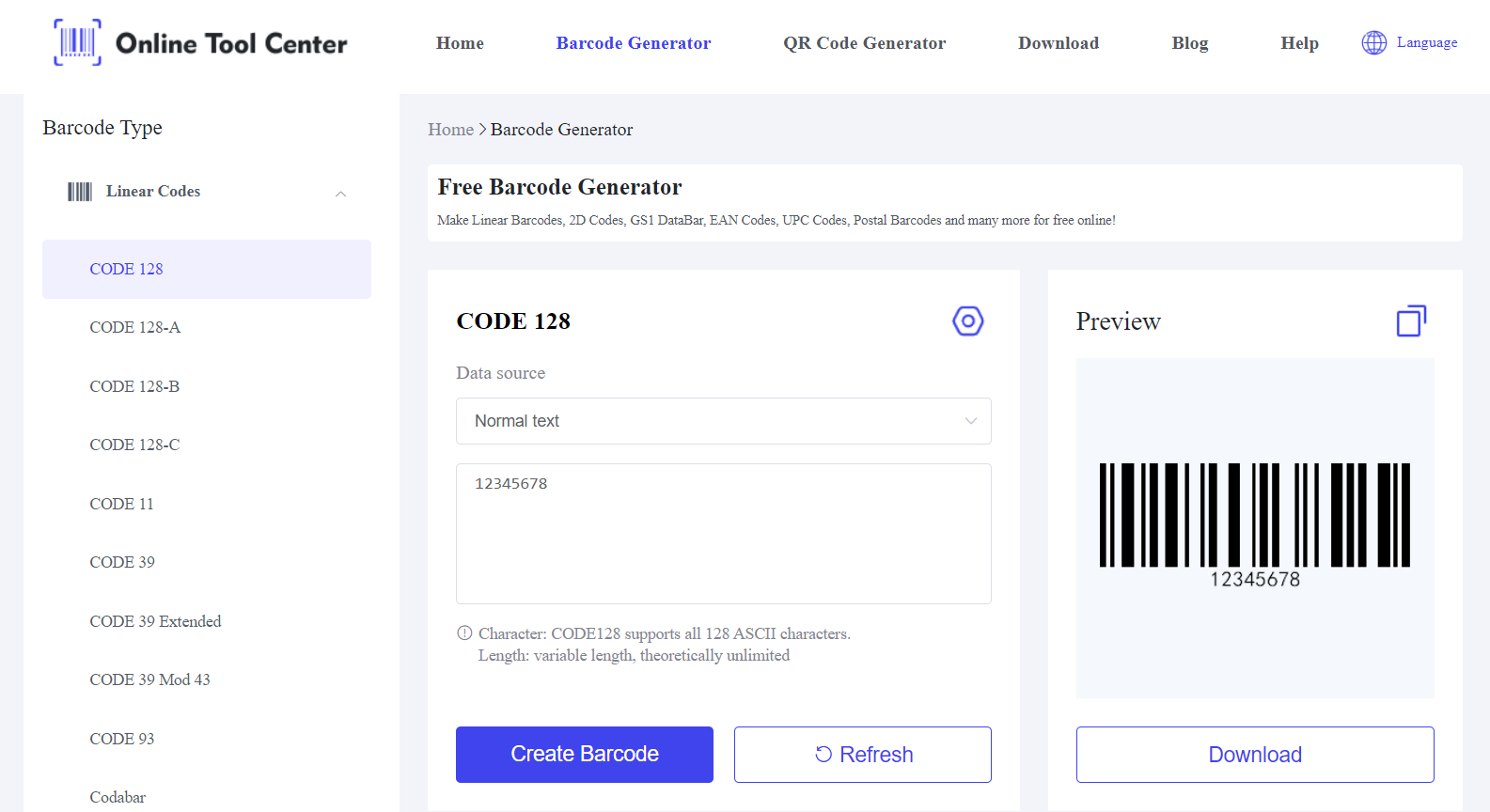Why Doesn't Hobby Lobby Use Barcodes? A Detailed Examination
When visiting a Hobby Lobby store, customers might notice something unique: the absence of barcodes on products. In an era where retail efficiency is driven by technology, this choice seems counterintuitive.
So, why doesn't Hobby Lobby use barcodes?
Hobby Lobby is a privately owned American retail chain specializing in arts and crafts supplies, home decor, and seasonal products. The company is also distinctive for its traditional approach to business operations, including its decision not to use barcodes, reflecting its commitment to a hands-on and personalized retail experience.
Unlike most retailers, Hobby Lobby opts for a system that emphasizes manual processes and a personalized customer experience. This decision is rooted in the company's philosophy and operational strategy, making it a distinctive case in the retail industry.
Some may argue that Hobby Lobby's no barcode policy could slow down the checkout process, particularly during peak shopping times. However, the company believes that the benefits of its system outweigh the potential downsides.

Image source: Hobby Lobby website
Hobby Lobby, founded in 1972 by David Green, has always emphasized a business model that integrates the company's Christian values with a focus on quality and customer service. Central to this model is the belief that maintaining a human touch in operations is crucial.
Barcodes, introduced in the 1970s, revolutionized retail by enabling fast and accurate processing of goods at checkout and improving inventory management. However, Hobby Lobby deliberately chooses not to use this technology, preferring instead to rely on a more labor-intensive process.

Image source: Hobby Lobby website
How Hobby Lobby Manages Inventory Without Barcodes?
Managing inventory without barcodes is no small feat, especially for a large chain like Hobby Lobby, which operates over 900 stores across the United States.
Instead of barcodes, Hobby Lobby uses Stock Keeping Unit (SKU) numbers. Each item is assigned an SKU, which employees manually input during sales transactions.
This system requires thorough training and attention to detail from store associates to avoid errors and ensure smooth operations.
Hobby Lobby's approach is highly dependent on human accuracy and diligence. Employees must be well-trained and attentive to prevent mistakes, such as incorrect pricing or mismanagement of stock levels. While this system is more time-consuming and labor-intensive than a barcode system, it allows for a level of scrutiny and care that the company values.
This method also allows for flexibility. For example, when sales or discounts are applied, employees can manually adjust prices at checkout, ensuring that the correct discount is applied without relying on pre-programmed barcodes. This flexibility is seen by the company as an advantage, as it allows them to maintain control over every aspect of the transaction.
Addressing the Myths about Shopkick Barcode
There have been persistent rumors suggesting that Hobby Lobby's avoidance of barcodes is due to religious beliefs, particularly the idea that barcodes are linked to the "Mark of the Beast" as described in the Book of Revelation.
These claims have been thoroughly debunked. Hobby Lobby has clarified that its decision is based on operational preferences rather than any religious doctrine.
The myth likely persists due to the company's Christian values and the unusual nature of its decision in a tech-driven industry. However, it's important to recognize that the avoidance of barcodes is strictly a business choice.
Compared to Other Retailers Who Use Barcodes
Most major retailers, including competitors in the arts and crafts space, rely heavily on barcodes for efficiency and accuracy. Barcodes help streamline everything from checkout to inventory tracking and even reordering stock.
In contrast, Hobby Lobby's system requires more human intervention, which can be seen as both a strength and a weakness.
For example, in large chains like Michaels or Joann Fabrics, barcodes ensure quick, accurate transactions and real-time inventory management. These systems reduce labor costs and improve operational efficiency.
Customer Experience and Employee Engagement
The absence of barcodes at Hobby Lobby also impacts the customer experience. While some might find the process slower, others appreciate the traditional approach.
Employees are more engaged in the checkout process, as they are responsible for manually entering prices and ensuring that transactions are correct. This engagement can lead to a more personalized shopping experience, which some customers prefer.
Overall, From an employee perspective, this system requires higher levels of training and attention to detail. Employees must be knowledgeable about the products and skilled in managing the manual processes involved.
While this might increase the workload, it also creates a more skilled workforce that is closely aligned with the company's values.
Why doesn't Hobby Lobby use barcodes? The company's decision is deeply rooted in its commitment to traditional values and a hands-on approach to operations. While this choice may seem inefficient compared to modern retail standards, it aligns with Hobby Lobby's broader philosophy of careful stewardship, personal responsibility, and customer service.
For businesses or individuals looking to embrace technology in inventory management, using a barcode generator can streamline operations and improve accuracy.

But for Hobby Lobby, the decision to operate without barcodes is a testament to their commitment to a business model that values tradition over convenience.




